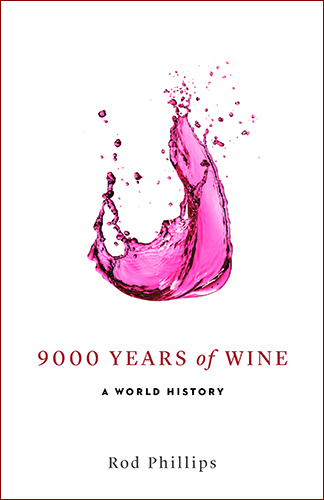Humans have had a complicated history with wine for thousands of years. It has been a banal item in the daily diet and treated as a liquid treasure. It has been venerated as a gift from the gods and c
On the Guardian (UK) Best Books on Drink list of 2017
Humans have had a complicated history with wine for thousands of years. It has been a banal item in the daily diet and treated as a liquid treasure. It has been venerated as a gift from the gods and cursed as threat to social order. It has been considered healthy to drink as well as hazardous to health. In 9000 Years of Wine, Rod Phillips surveys this long story and places wine in the broad sweep of history. He shows how it has been linked to big social, cultural, and economic swings, how it has been caught up in wars and revolutions, and how it has had an impact on the lives of men and women for millennia.
Rod Phillips
is an Ottawa-based wine writer and wine historian, and a professor of history at Carleton University. His books include A Short History of Wine (2000), Ontario Wine Country (2006), Alcohol: A History (2014), and French Wine: A History (2016). He writes wine features for NUVO Magazine and Vines Magazine, has contributed to The World of Fine Wine and GuildSomm.com, and publishes articles and wine reviews on rodphillipsonwine.com. He travels extensively to wine regions around the world and has judged in wine competitions in Canada, the US, France, Italy, New Zealand, and Chile.
View Biographical note
2018 Taste Canada Silver Medal Winner in the Culinary Narratives category
On the Guardian (UK) Best Books on Drink list of 2017
From the selection committee: "It's impeccably researched: if you want to know the impact of the French Revolution on wine, this is the place to start. The statistics in particular are wonderful, such as a hospital in Darmstadt, Germany, that got through 4,633 bottles of white, 6,332 bottles of red, 60 bottles of champagne and 30 dozen bottles of port in one year, 1870. That/'s where I want to convalesce."
View Promotional headline
